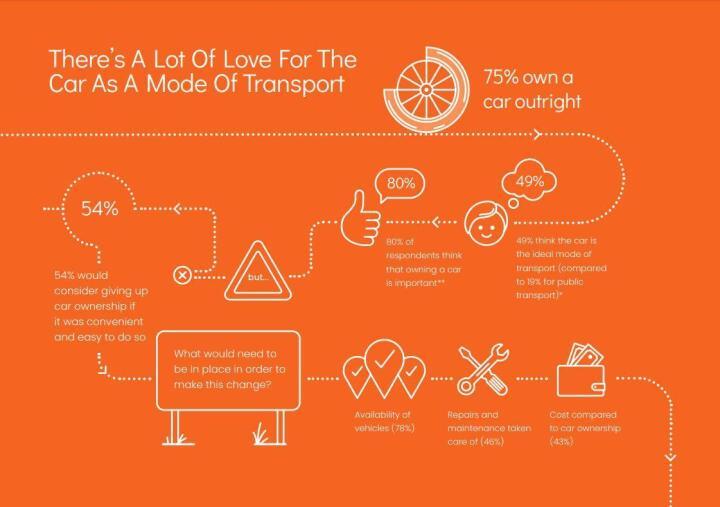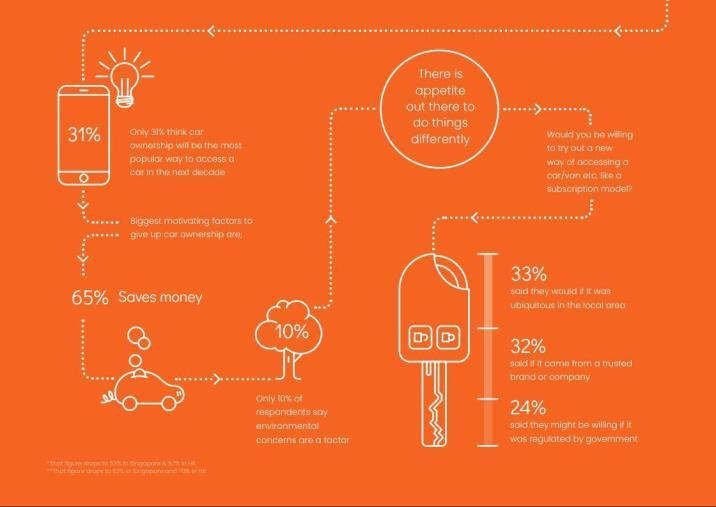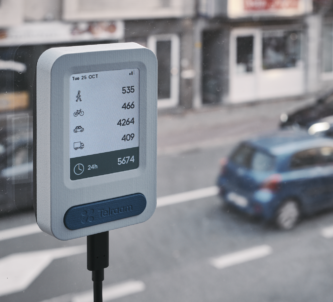We sort of know this, but a report published today by the Avis Budget Group, suggests that while car use remains as popular as it ever was, private car ownership looks set to decline over the next decade as consumers move to an access-driven, on-demand model for their favourite mode of transportation.
The Road Ahead: The Future of Mobility report is based on research with 14,286 adults in July and August 2019 across 16 International markets, to understand consumer attitudes towards mobility.
In the UK, 81% of respondents say that owning a car is still important to them – with 74% owning a car outright and 60% listing the car as their ‘ideal’ mode of transport. However, the trend for ownership is set to change, highlighted by almost half (44%) of participants claiming that they are prepared to give up owning a car in favour of long-term rental and on-demand or subscription services.
Interestingly, the report also found that Brits wish they could change their vehicle for summer holidays (40%) or weekends away (26%) – demonstrating the need for flexibility when it comes to different types of domestic travel.
These findings reflect the changing attitude towards car ownership across the globe, where, unlike us conservative Brits, more than half of those surveyed (54%) are open to alternative mobility solutions.
The report also draws on other pieces of research in the transport sector and their own previous surveys to make points and identify trends.
For example, the 2018 ING report Car Sharing Unlocked suggests that the move away from car ownership may already be underway as almost seven percent of Europeans with a driver’s license said they already used car sharing, while nearly a quarter would consider using it.
And the trend away from private car ownership might have huge capacity benefits.
The 2012 RAC Foundation report Spaced Out: Perspectives On Parking Policy calculated that cars in the UK spend over 95 percent of their time parked. It follows that a more efficient stock of shared vehicles would reduce the pressure on parking space on our roads.
The anticipated future growth of autonomous vehicles in private & shared fleets also holds out the tantalising prospect of the roads themselves having far greater capacity since autonomous vehicles can drive much closer to each other. However they note that although autonomous vehicle development by Google and others may be well advanced but according to their 2018 survey of 14,000 adults in 14 European countries, almost half simply did not understand the definitions of ‘connected’ or ‘autonomous’ vehicles. There may be a while to go before they become mainstream.
The Road Ahead report makes for interesting reading and its results are rather neatly summarised in a flowchart…
Personally, I’m lagging behind. I’ve had an account with a car share scheme for years but have yet to actually use it!










UPDATE: I have little doubt that the trend described is happening, but the pace of change may not be as rapid as expected. Drive Now, one of the leaders in the car share sector has just declared it is pulling out of London.
https://www.drive-now.com/gb/en/now/important-update